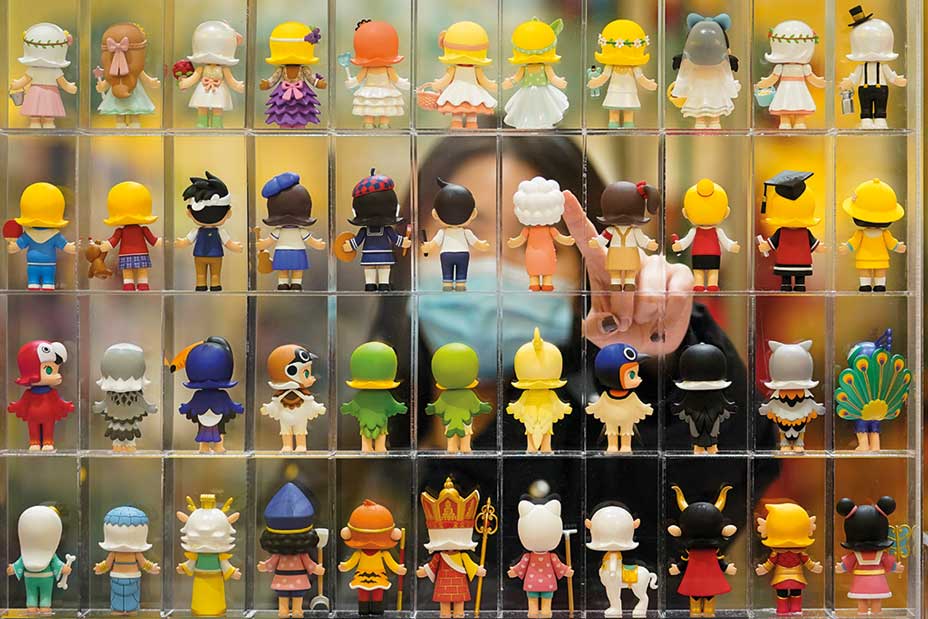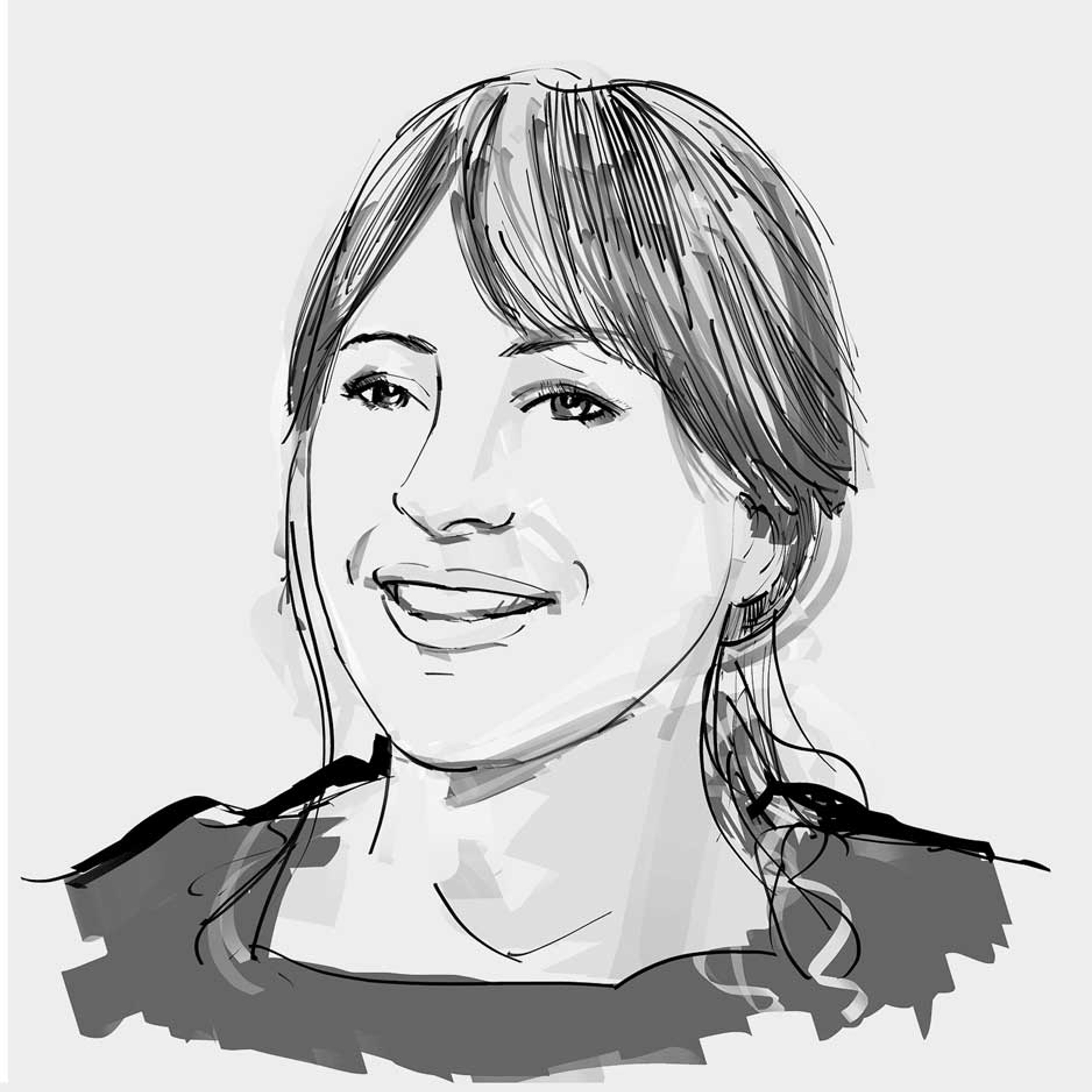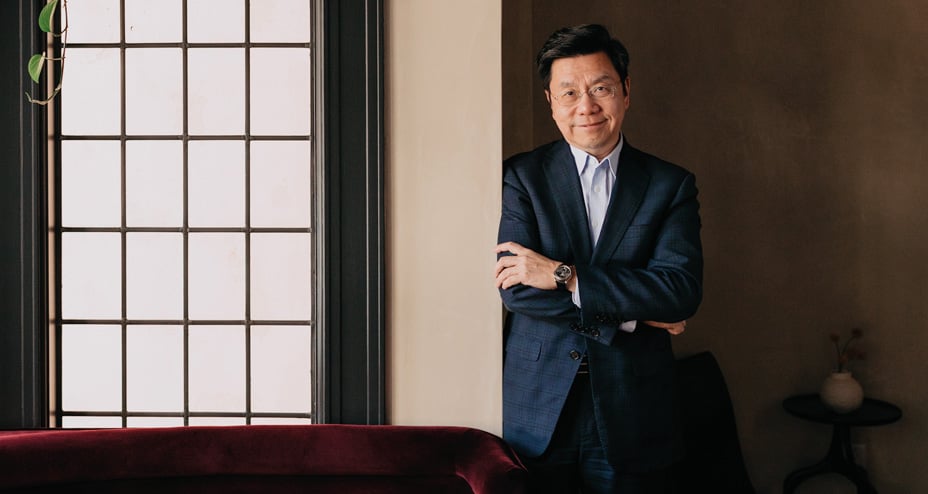
© Visual China Group/Getty Images
Please remember that the value of an investment can fall and you may not get back the amount invested.
This article originally featured in Baillie Gifford’s Autumn 2021 issue of Trust magazine.
Construction worker Hong won’t buy Nike or Adidas. He thinks they don’t respect Chinese customers. Young mum Yun does 90 per cent of her socialising online. Weishen eats and drinks for free in exchange for posting about restaurants and tea shops on social media. Understanding how China’s Generation Z lives, works, eats, chats, dates and shops makes us better investors.
Born between 1995 and 2010, Gen Z makes up 15 per cent of China’s population and by 2027 will comprise around 30 per cent of the workforce. The high disposable income in their virtual wallets makes them a powerful force that companies must learn to cater to.
As managers of Baillie Gifford China Growth Trust, we want to dig deeper and extend our horizons beyond what is usual in investment research. Disruptive and secular shifts play out over years, not months. We need the kind of grassroots information that will tell us what might happen in the decades to come. Understanding, for example, the consumer behaviour that helped ByteDance achieve $34bn in annual revenues before its 10th birthday could make us better investors in the next generation of growth companies.

Specifically, we want to know how the buying habits of the young Chinese differ from those of their parents. That earlier generation had limited use for video-sharing site Bilibili, sportswear brand Li-Ning and cosmetics groups Proya and Yatsen. They might be baffled by the popularity of trendy toymaker Pop Mart.
Research we commissioned from Alarice International, a digital marketing agency, has taught us a lot about Gen Z’s willingness to try domestic rather than international brands, and to use micro-video sites to click through to find them. They love electric vehicles and have a healthy obsession with diet, skin condition and general wellness. They’re notably fond of pets.
Gen Z is anything but homogeneous. Tastes differ according to age and between city and rural dwellers. As many of China’s 23 provinces are at least as big as major European states, geography matters in ways that investors in China must strive to understand.
Amid this vast and complex landscape, our job is to tune in to the interests and aspirations, hopes and dreams, fads and fashions of China’s increasingly influential youth.
Gen Z is anything but homogeneous. Tastes differ according to age and between city and rural dwellers

I have a high school education and am easy-going, friendly and passionate. I’m working in sales, this is my fourth job in four years. During the epidemic I did live-streaming for two months, three or four hours a day, but it was too draining and time-consuming for the money. I’d like to wait three or four years for marriage and I think one child would be enough.
I used to be skinny and started building myself up at the gym and with basketball, which has helped my confidence and social life. Now my passion is staying fit and I take sports drinks and supplements like protein powder, beef jerky and buckwheat crackers.
I share photos on Xiaohongshu, also known as Red, and have fans on there. Sometimes I get to eat and drink for free in return for posting photos at tea shops or restaurants.
I save half my income every month for a good standard of living in the future. Friends got me into investing, and I’ve bought gold and some bank funds. I know to diversify to reduce my risk.
I also use Weibo, Douyin [TikTok] and the dating app Soul, which I like because it’s anonymous.

I’m a university student majoring in design and would like to be a designer. I’m easy-going and not overly ambitious. My ideal lifestyle would be a good work-life balance and financial freedom. I want to take my time before getting married.
Buying new Pop Mart blind boxes [where you can’t see the contents before you buy], usually dolls, helps me learn about different designs and fashion trends. Being a superfan is a big part of my life, and I’ve made a lot of friends in a fan group on a social network. We share updates and go to concerts together. Bilibili is my favourite video app. I used to use Douyin, the Chinese version of TikTok, but I was wasting too much time on it. I buy new shoes and clothes every month. My cosmetics are mainly foreign brands but like a lot of people I’m not persuaded by celebrity advertising.
I like socialising with friends, going shopping, having meals and playing sports. The social media app I use most is the instant messenger WeChat – the main alternative, QQ, is used by a lot of people my age but for me it’s too complicated and a bit garish. I’ve got two cats.

I got married at 20, we live in a small city and we have a five-year-old son. I would call myself lively, cheerful and enthusiastic. My husband wasn’t keen on me working for other people, so I opened a children’s clothing store by myself. It wasn’t really to make money, as my husband bought our home without a mortgage, but it does give me a personal income. During the epidemic people shifted online and my business increased by about 30 per cent year-on-year.
I like social media apps and used to post videos on Douyin but now I think more about my privacy. Red is great for chasing fashion trends.
I tend to use online shopping platform Taobao for buying clothes and Douyin for Chinese beauty products, which are better for price and quality. I study this and I’m thinking about opening a medical beauty shop with a friend. I go out to eat with friends and I don’t worry much about sugar or calories.
Now I’m married I probably do 90 per cent of my socialising online. I do buy co-branded products, blind boxes, and Hello Kitty [a Japanese fictional character]. But I’ve given up being a superfan, preferring to spend the money on my family.

I’m a graduate working for a construction company. I’m open-minded and outgoing. I like living in a small city and my ideal job is teacher or public servant. Being close to my parents, I know they will help me buy an apartment. During Covid I had no income for months, which made me realise the importance of things like wise advice, good health and financial independence. Things can get really messy if you don’t plan ahead. I’m in a relationship and I see myself married with a child and a cat.
I’m big on Weibo for celebrity gossip but I also follow political news. China is important to me and I won’t buy brands like Nike or Adidas if they continue to disrespect Chinese consumers. My passion is online games, such as multiplayer games by 2K or King of Glory, and Nintendo consoles. I’m an administrator for a WeChat group, and often watch famous gamers on live streams on Bilibili.
I custom-built my own computer and spend a lot on games and new electronics, including iPads and iPhones, not because I support Apple but because I want to know what works well.
If you would like to register to receive Trust magazine please visit bailliegifford.com/trust
Investments with exposure to overseas securities can be affected by changing stock market conditions and currency rates. The trust has a significant exposure to private companies. The trust’s risk could be increased as these assets may be more difficult to buy or sell, so changes in their prices may be greater.
The views expressed in this article should not be considered as advice or a recommendation to buy, sell or hold a particular investment. The article contains information and opinion on investments that does not constitute independent investment research, and is therefore not subject to the protections afforded to independent research.
Some of the views expressed are not necessarily those of Baillie Gifford. Investment markets and conditions can change rapidly, therefore the views expressed should not be taken as statements of fact nor should reliance be placed on them when making investment decisions.
Baillie Gifford & Co Limited is wholly owned by Baillie Gifford & Co. Both companies are authorised and regulated by the Financial Conduct Authority and are based at: Calton Square, 1 Greenside Row, Edinburgh EH1 3AN.
The investment trusts managed by Baillie Gifford & Co Limited are listed on the London Stock Exchange and are not authorised or regulated by the Financial Conduct Authority.
A Key Information Document is available by visiting bailliegifford.com





